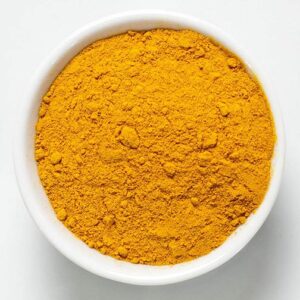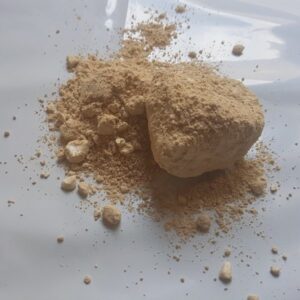Cannabinoide
Understanding Cannabinoids: Benefits, Types, and Uses
Cannabinoids are a group of chemical compounds that interact with the cannabinoid receptors in the body to produce a variety of effects. These compounds are most commonly found in cannabis plants, but they also occur naturally in the human body and other plants.
In this comprehensive guide, we’ll explore what cannabinoids are, how they work, their benefits, and their applications across various fields.
What Are Cannabinoids?
Cannabinoids are naturally occurring compounds primarily found in cannabis plants. These compounds interact with the body’s endocannabinoid system (ECS), a complex cell-signaling system that regulates processes such as mood, appetite, sleep, and pain.
Types of Cannabinoids
-
Phytocannabinoids: Found in cannabis plants, these include THC, CBD, and others.
-
Endocannabinoids: Naturally produced in the human body, such as anandamide and 2-AG.
-
Synthetic Cannabinoids: Lab-made compounds designed to mimic the effects of natural cannabinoids.
Popular Cannabinoids and Their Effects
1. THC (Tetrahydrocannabinol)
-
Psychoactive: Known for its “high” effect.
-
Benefits: Pain relief, appetite stimulation, and nausea reduction.
-
Applications: Used in medical marijuana for conditions like chronic pain and chemotherapy-induced nausea.
2. CBD (Cannabidiol)
-
Non-Psychoactive: No “high” effect.
-
Benefits: Anxiety reduction, anti-inflammatory properties, and seizure management.
-
Applications: Widely used in wellness products, oils, and edibles.
3. CBG (Cannabigerol)
-
Emerging Cannabinoid: Known as the “mother of cannabinoids.”
-
Benefits: Potential antibacterial and anti-inflammatory effects.
-
Applications: Being studied for applications in treating glaucoma and inflammatory bowel disease.
4. CBN (Cannabinol)
-
Sedative Effects: Often associated with sleep support.
-
Benefits: Mild psychoactive effects with potential to improve sleep quality.
-
Applications: Found in sleep-aid products.
How Cannabinoids Work: The Endocannabinoid System
The endocannabinoid system (ECS) is vital for maintaining homeostasis. It includes:
-
Cannabinoid Receptors: CB1 (found in the brain and central nervous system) and CB2 (found in the immune system).
-
Endocannabinoids: Molecules produced by the body that activate these receptors.
-
Enzymes: Break down cannabinoids after their effects are carried out.
When cannabinoids interact with these receptors, they influence physiological processes such as pain, mood, and immune response.
Medical and Recreational Uses of Cannabinoids
1. Medical Applications
-
Chronic Pain: THC and CBD are often used to manage chronic pain in conditions like arthritis and multiple sclerosis.
-
Epilepsy: CBD is approved by the FDA for treating certain types of epilepsy, such as Dravet syndrome.
-
Mental Health: Cannabinoids like CBD show promise in managing anxiety, PTSD, and depression.
2. Recreational Uses
Cannabinoids, especially THC, are used recreationally for their euphoric effects. However, the recreational use of cannabinoids is regulated and varies by jurisdiction.
Emerging Research and Innovations
The field of cannabinoid research is rapidly evolving. Current studies are focusing on:
-
Cancer Treatment: Cannabinoids may help in reducing tumor growth.
-
Neuroprotection: Potential for treating neurodegenerative diseases like Alzheimer’s and Parkinson’s.
-
Sleep Disorders: CBN and CBD are being explored for their sedative effects.
Legal Status of Cannabinoids
The legality of cannabinoids varies across countries and states. While CBD is widely accepted in many regions, THC often faces strict regulations. It’s essential to check local laws before purchasing or using cannabinoid products.
Cannabinoid Products in the Market
1. Oils and Tinctures
-
Popular for their versatility and ease of use.
-
Often used for pain relief, anxiety, and sleep.
2. Edibles
-
Include gummies, chocolates, and beverages.
-
Provide a discreet and enjoyable way to consume cannabinoids.
3. Topicals
-
Creams, balms, and lotions infused with cannabinoids.
-
Used for localized pain and skin conditions.
4. Capsules and Pills
-
Offer precise dosing.
-
Commonly used for chronic conditions.
FAQs About Cannabinoids
1. Are all cannabinoids psychoactive?
No, not all cannabinoids are psychoactive. For example, CBD does not produce a “high,” whereas THC does.
2. Can cannabinoids help with anxiety?
Yes, CBD, in particular, has shown potential in reducing anxiety and promoting relaxation.
3. Are cannabinoids addictive?
THC has the potential for dependency, but CBD and other non-psychoactive cannabinoids are not considered addictive.
4. How are cannabinoids consumed?
Cannabinoids can be consumed via smoking, vaping, edibles, oils, tinctures, and topicals.
Conclusion
Cannabinoids are a fascinating group of compounds with a wide range of applications in medicine, wellness, and recreation. As research advances, their potential benefits continue to expand, offering new possibilities for improving human health and well-being.
Keyword Optimization: Cannabinoids, THC, CBD, endocannabinoid system, cannabinoid products, medical cannabinoids, cannabinoid benefits, cannabinoid research.
Showing all 5 results





